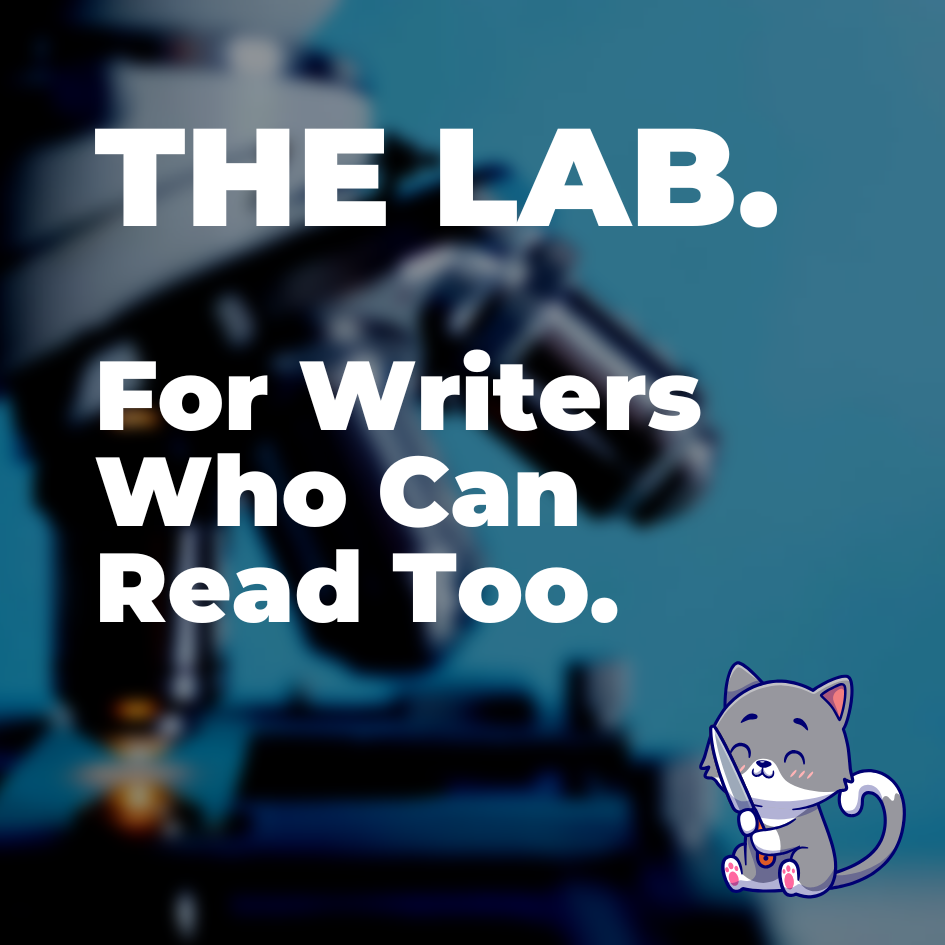Here’s a worthwhile video for your perusal. They’re talking about the music industry, but (a) what happens in music is usually soon reflected in publishing; and (b) Gioia uses some great examples from book publishing to make his points.
It’s not all bad news. “Only creative people can save us” strikes a chord (sorry) with me, in particular.
If you don’t have time to watch the whole thing, there’s an AI-generated summary following. Yes, why not fight fire with fire…?!
It’s not all bad news. “Only creative people can save us” strikes a chord (sorry) with me, in particular.
If you don’t have time to watch the whole thing, there’s an AI-generated summary following. Yes, why not fight fire with fire…?!
00:00:00
In the YouTube video "The Silent Takeover: Ted Gioia on AI's Threat To Music," music historian, critic, and futurist Ted Gioia expresses concerns about the use of Artificial Intelligence (AI) in the music industry and its potential harm to both fans and musicians. He shares his experiences of deceptive practices in various fields, such as writing and publishing, where AI is used without disclosure. Gioia then discusses the music streaming platform Spotify, suspecting AI is being used to create and attribute songs to non-existent artists, allowing the company to keep royalties. He also mentions Universal Music's concerns about AI being used on TikTok without paying royalties. Gioia argues that AI is being used as a cost-saving measure, deceitfully introduced to the market, and potentially leading to cultural stagnation and a loss of authenticity. He encourages viewers to pay attention to these developments and the importance of honesty, authenticity, and risk-taking in the music industry.- 00:00:00 In this section of the interview, Ted Gioia, a music historian, critic, and futurist, expresses his concerns about the use of Artificial Intelligence (AI) in the music industry. He shares his experiences of encountering deceptive practices in various fields, such as writing and publishing, where AI is used without disclosure. Gioia then discusses the music streaming platform Spotify, where he suspects AI is being used to create and attribute songs to non-existent artists, allowing the company to keep royalties that would otherwise go to musicians. He also mentions Universal Music's concerns about AI being used on TikTok to create music without paying royalties. Gioia argues that AI is being used as a cost-saving measure, deceitfully introduced to the market, and potentially harming both fans and musicians.
- 00:05:00 In this section of the YouTube video titled "The Silent Takeover: Ted Gioia on AI's Threat To Music," the speaker discusses the growing influence of tech platforms like TikTok and Spotify on the music industry. Universal Music Group reportedly came back to TikTok after a disagreement, but the speaker suggests that the real reason was the inability to promote records without the platform. Neil Young and Joni Mitchell also left Spotify around the same time. The speaker argues that these tech companies prioritize their own financial gain over the health of the music ecosystem and that artists and music lovers are left with little choice but to comply. The speaker also raises concerns about the accuracy of streaming numbers on platforms like Spotify, citing the example of a Swedish artist, Johan R, who has achieved 15 billion streams under 656 different aliases. The speaker suggests that Spotify may be using Johan R to manipulate streaming numbers, but the veracity of this claim is uncertain.
- 00:10:00 In this section of the YouTube video titled "The Silent Takeover: Ted Gioia on AI's Threat To Music," Ted Gioia expresses concerns about the music streaming industry and its impact on the music ecosystem. He discusses how algorithms used by streaming platforms like Spotify and YouTube promote music with high play counts, potentially suppressing lesser-known artists. Gioia argues that this passive listening experience is not beneficial for music culture, as people are no longer connecting with the artists or the music in the same way they used to. He also criticizes the business model of these streaming services, which relies on cutting costs, raising subscription prices, and playing "games" with algorithms to maximize income. Gioia warns that this trend is not unique to music and is happening in other creative industries as well. He encourages viewers to pay attention to these developments, even if they are not directly involved in the music business, as the same thing is likely to happen in other areas of culture.
- 00:15:00 In this section, Ted Gioia discusses the cyclical nature of cultural trends such as coolness in society and the complexity of music. He reflects on how the concept of "cool" has evolved over decades, citing examples from history to show how trends come and go in cycles lasting around 50 to 60 years. He further applies this concept to the music industry, noting the shift towards simpler song structures over time and suggesting that this trend may eventually reverse as people tire of the current status quo. Drawing on the theory of reflexivity by George Soros, Gioia predicts that cultural trends, like the current trend in commercial music towards simplicity, may eventually reach an extreme before reversing.
- 00:20:00 In this section, Ted Gioia discusses the cyclical nature of creative industries such as movies and music, highlighting how trends and formulas eventually reach a point of exhaustion. Drawing parallels between the decline of Western movies and musicals in Hollywood to the evolution of popular music, he expresses optimism for a potential turnaround in the music industry. He emphasizes the need for risk-taking and creative freedom in music production, pointing out the shift towards using multiple writers and producers on songs as a response to declining profits. Gioia predicts that the industry will have to embrace edgier and more innovative content to stay relevant, much like the transformative period in cinema history that led to iconic films like "The Godfather" and "Taxi Driver."
- 00:25:00 In this section, the speaker discusses the negative impact of artistic decisions made by committee, particularly in the music industry. They explain how the trend of multiple songwriters for a single song can be financially driven rather than creatively motivated, leading to a decline in the quality of music. The focus on managing intellectual property rather than fostering new talent is viewed as detrimental to the culture of music, with major record labels shifting towards accumulating publishing rights rather than producing innovative music. This shift raises concerns about the future of music creativity and the industry's focus on existing catalog rather than supporting new artists and music.
- 00:30:00 In this section, Ted Gioia discusses the changes in the music industry's approach to developing new artists and the challenges faced by record labels in the era of TikTok stars. He highlights how labels have shifted towards signing artists who already have a following instead of nurturing new talent, leading to a lack of leverage for the labels and unsustainable deals for artists. Gioia suggests that the industry should return to taking risks, identifying promising talent, and fostering creativity to create the next generation of music stars. Additionally, he reflects on the growing importance of the "microculture" of independent creators like himself, predicting that by 2024, these independent voices will triumph over the dominant "macroculture" of legacy institutions, offering artists more freedom and flexibility in their careers.
- 00:35:00 In this section, the speaker discusses how the microculture of platforms like YouTube has become larger than traditional entertainment giants like Netflix, attributing their success to the vibrant alternative culture that thrives on risk-taking and unpredictability. He emphasizes the need for large companies to embrace this shift, highlighting the importance of taking creative risks outside of traditional institutional support. Drawing parallels with the unpredictability of his own publishing schedule and audience preferences, the speaker advocates for independent creators to lead the way in revitalizing a stagnant culture by embracing risk-taking and autonomy.
- 00:40:00 In this section of the YouTube video titled "The Silent Takeover: Ted Gioia on AI's Threat To Music," the speaker, Ted Gioia, shares an anecdote about how coffee sales declined due to the oversaturation of the market with overly sweet and unusual coffee drinks. He reflects on his own childhood experience with coffee and how it contributed to his success. Gioia argues that this phenomenon is a sign of a larger cultural issue where things are reduced to formulas, leading to diminishing returns. He uses the example of Starbucks and its Frappuccinos, which became less popular as consumers sought more serious and authentic drinks. Gioia also touches upon the topic of society and how people are often seeking formulas for success or happiness, but true value comes from authenticity and seriousness.
- 00:45:00 In this section of the YouTube video titled "The Silent Takeover: Ted Gioia on AI's Threat To Music," Ted Gioia discusses the risk of cultural stagnation in society, using historical examples of long periods of unchanged traditions. He argues that this stagnation is a more prevalent risk than collapse and is evident in various industries, such as entertainment and music. Gioia believes that the vitality will come from the grassroots level where people are willing to take risks and create new things, despite the interference from bureaucrats and decision-makers in large corporations. He emphasizes the importance of trust and honesty in building relationships with audiences and readers.
- 00:50:00 In this section, the speaker emphasizes the importance of honesty and authenticity in communication, particularly in the context of writing. They discuss the critical need for writers to speak directly to their audience without filters or misleading information, highlighting the impact of building trust with readers through candid conversations. The speaker shares their personal approach to writing and communication, focusing on maintaining integrity and transparency, even when expressing unpopular opinions. They also touch on the distinction between art and entertainment, noting that while entertainment aims to fulfill audience expectations, art often challenges and transcends conventional boundaries.
- 00:55:00 In this section, the speaker discusses the importance of artists challenging listeners and the limitations of algorithms in providing truly new and mind-expanding experiences. They emphasize the role of artists in pushing boundaries and introducing new perspectives, contrasting this with the passive nature of algorithm-driven music recommendations. The speaker raises concerns about the shift towards a passive culture where choices are made for the listener, potentially limiting exposure to diverse or innovative content. This passive consumption could lead to a loss of active engagement with cultural experiences, prompting a reflection on the risks associated with such a shift.
01:00:00
In the YouTube video "The Silent Takeover: Ted Gioia on AI's Threat To Music," Ted Gioia discusses the importance of live music and artists' connections with fans in the digital age, using Taylor Swift's extensive global tour as an example. He emphasizes the significance of real artists engaging with their audience, contrasting it with the passive experience of AI-generated music. Gioia also reflects on the role of industry figures like John Hammond who fought for artists and nurtured their careers, and the evolving landscape of the music industry where platforms like YouTube and TikTok provide new avenues for artists. He stresses the importance of continuous learning, diversity in music consumption, and taking the time to develop skills and gather experiences. Gioia also shares his personal experiences and advice on following one's passion and interests, and the importance of stepping out of one's comfort zone. However, he expresses concern over the potential threat of artificial intelligence to the music industry, raising issues of job loss for musicians and composers and the emotional connection between audiences and human performers. Gioia concludes by suggesting that musicians and composers need to adapt to this new technological landscape and find ways to add value beyond what AI can offer.- 01:00:00 In this section, the speaker discusses the importance of live concerts as a thriving aspect of music culture in the digital age, using Taylor Swift's extensive global tour as an example. They highlight the significance of real artists connecting directly with their fans, contrasting it with the passive experience of AI-generated music. The speaker stresses the need for more artists like Taylor Swift who actively engage with their audience, while also underscoring the challenges faced by artists in developing their careers amidst societal pressures for quick success. Much like the missed opportunity with singer Eva Cassidy, the section raises the necessity for record labels and producers to support artists long-term for them to reach their full potential.
- 01:05:00 In this section, the speaker reflects on the importance of industry figures like John Hammond who fought for artists and nurtured their careers. They discuss the evolving landscape of the music industry, where platforms like YouTube and TikTok provide new avenues for artists to showcase their work without traditional gatekeepers. The speaker emphasizes the importance of continuous learning and input, highlighting their own routine of discovering new music from various genres globally. They stress the significance of consuming diverse content to fuel creativity and productivity, reinforcing the idea that one's output is directly linked to their input.
- 01:10:00 In this section, the speaker discusses how improvisation in music tends to favor younger artists, but highlights the benefits of accumulated experience over time in the music world. While creativity often comes from young individuals, older artists can offer valuable insight and guidance to the culture. The speaker reflects on their own journey, noticing that their audience grew as they got older, allowing them to share the wisdom gained from a lifetime of experiences. They emphasize the importance of taking the time to develop skills and gather experiences before being able to fully seize opportunities in the industry.
- 01:15:00 In this section of the YouTube video titled "The Silent Takeover: Ted Gioia on AI's Threat To Music," Ted Gioia discusses the shift from a rational and industrial society to one driven by creativity and art in the early 1800s. He uses the example of Beethoven, who became a celebrity and a cultural icon, surpassing the fame of entrepreneurs and industrialists. This shift led to the emergence of laws against child labor and slavery, marking a humanistic and creative era. Gioia believes we are experiencing a similar transition today, with tech titans controlling the world. He argues that we need more creative and humanistic spirits to counteract the increasingly rationalistic and algorithmic society. Gioia has immersed himself in studying the historical shift from rationalism to romanticism, drawing parallels between the two eras and predicting that we are entering a new phase where creative artistic people will lead the way.
- 01:20:00 In this section of the YouTube video titled "The Silent Takeover: Ted Gioia on AI's Threat To Music," Ted Gioia shares his unique educational background and career journey, which includes studying philosophy, politics, and economics at Oxford, obtaining an MBA from Stanford Business School, and becoming a jazz pianist and writer. He explains how he applied his analytical skills from business to forecasting trends in the creative industry, such as the growth of Universal Music Group's publishing business. Gioia also discusses the impact of the internet on his career, acknowledging that it has been both a curse and a blessing. He lost opportunities in traditional media but gained the ability to connect directly with his audience. Gioia advises students to pursue creative fields, as he believes that the next generation of leaders will come from these areas, and warns against the potential job loss in tech industries due to AI advancements.
- 01:25:00 In this section of the YouTube video titled "The Silent Takeover: Ted Gioia on AI's Threat To Music," Ted Gioia shares his personal experiences and advice on following one's passion and interests in life. He emphasizes the importance of having an open mind and not limiting oneself to preconceived notions of what one should be or do. Gioia recounts his own journey from teaching jazz to becoming a songwriter, record producer, and eventually starting a YouTube channel. He encourages individuals to listen to their hearts and souls, follow their bliss, and make decisions based on what calls to them, rather than practical considerations or societal expectations. Gioia's advice is rooted in his belief that success comes from within and that taking risks and stepping outside of one's comfort zone can lead to empowering experiences.
- 01:30:00 In this section of the YouTube video titled "The Silent Takeover: Ted Gioia on AI's Threat To Music," Ted Gioia shares his thoughts on the importance of stepping out of one's comfort zone and developing diverse skills. He advises his sons to not be afraid of exploring new areas and believes that this is how individuals build their job skills. Society, according to Gioia, tends to pigeonhole people into specific roles early in life, but talented individuals have the ability to go in different directions and develop various capacities. Gioia expresses his excitement and passion for music and writing, stating that he will continue to do so as long as he feels invigorated and writing at a high level. He also mentions his love for coffee and its impact on productivity and creativity. Overall, Gioia emphasizes the importance of embracing new experiences and challenges in life to grow and develop.
- 01:35:00 In this section of the YouTube video "The Silent Takeover: Ted Gioia on AI's Threat To Music," Ted Gioia, a renowned jazz pianist and music scholar, discusses the potential threat of artificial intelligence (AI) to the music industry. Gioia expresses concern over the ability of AI to create music that is indistinguishable from human compositions, which could lead to a loss of jobs for musicians and composers. He also raises the issue of the emotional connection between audiences and human performers, which could be diminished by the increasing prevalence of AI-generated music. Gioia concludes by suggesting that musicians and composers need to adapt to this new technological landscape and find ways to add value beyond what AI can offer.




